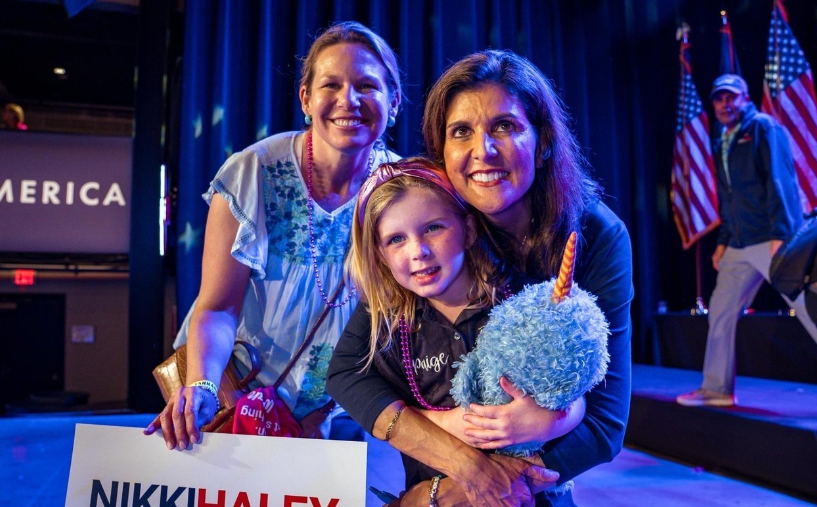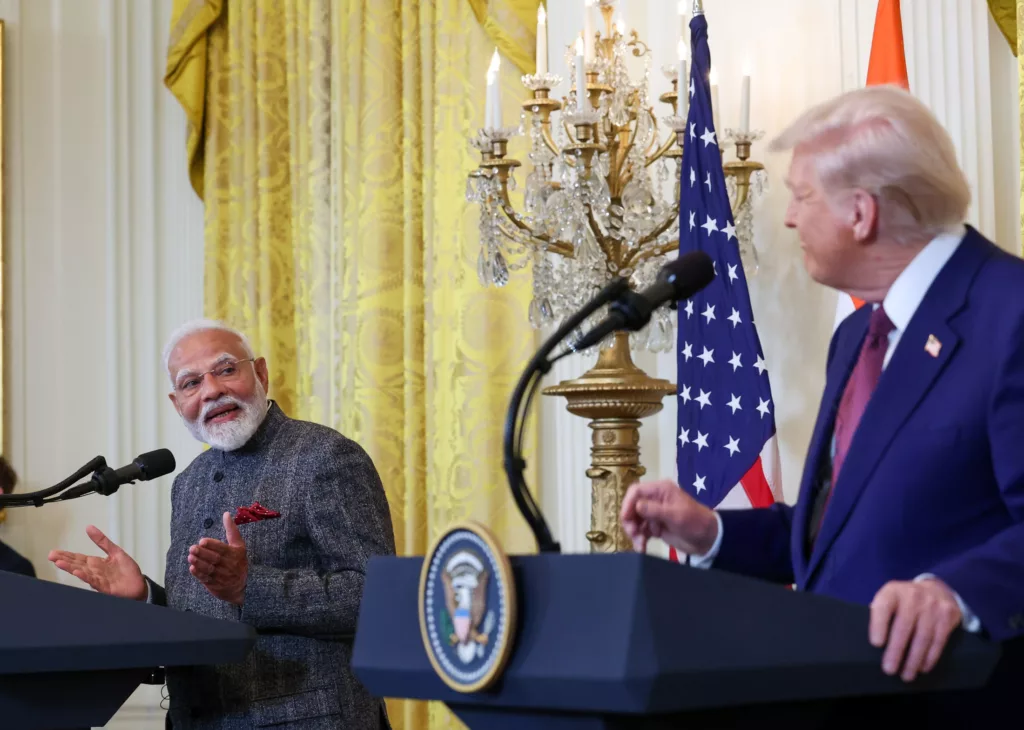Amid escalating tensions between New Delhi and Washington over trade and energy ties, former United States Ambassador to the United Nations Nikki Haley has cautioned that the India-US relationship is in jeopardy.

Her remarks come in the wake of recent US tariffs targeting Indian goods, linked to India’s continued oil trade with Russia. Haley, in an opinion piece published in Newsweek on Wednesday, August 20, warned that alienating India could derail long-standing diplomatic progress and undermine US efforts to counter China’s global ambitions.
The latest strain in the bilateral ties has emerged after the Trump administration imposed a 25 percent tariff on Indian goods, specifically citing India’s purchases of Russian oil. These duties add to existing levies already in place on Indian imports. The situation has further deteriorated with India’s firm position against involving the US in mediating ceasefire talks with Pakistan, leading to increasing friction between the two countries.
ALSO READ: White House says US imposed tariffs on India to put pressure on Russia to end Ukraine war
In her article, Haley stressed the importance of not conflating India with China, warning that such a comparison would damage a critical alliance.
“To achieve the Trump administration’s foreign policy goals — outcompeting China and achieving peace through strength — few objectives are more critical than getting US-India relations back on track,” she wrote.
While expressing agreement with concerns over India’s Russian oil imports, Haley was critical of the administration’s approach. “Trump is right to target India’s massive Russian oil purchases,” she noted, but cautioned that “treating India like an adversary instead of a partner would be a massive — and preventable — mistake”.
The US-India relationship is at a troubling inflection point. @NikkiHaley and @bill_drexel explain why getting US-India relations back on track is critical for the administration's foreign policy goals:
— Hudson Institute (@HudsonInstitute) August 20, 2025
1. outcompeting China
2. achieving peace through strength
A thread 🧵 pic.twitter.com/Bsvvgq4jBJ
She called on the administration to distinguish between a democratic ally and a strategic rival. “India must be treated like the prized free and democratic partner that it is, not an adversary like China, which has thus far avoided sanctions for its Russian oil purchases, despite being one of Moscow’s largest customers,” Haley wrote. “Scuttling 25 years of momentum with the only country that can serve as a counterweight to Chinese dominance in Asia would be a strategic disaster.”
She further highlighted India’s key role in reconfiguring global supply chains, pointing out that its manufacturing potential could serve as an effective alternative to China for various essential goods. “While the Trump administration works to bring manufacturing back to our shores, India stands alone in its potential to manufacture at a China-like scale for products that can’t be quickly or efficiently produced here, like textiles, inexpensive phones, and solar panels,” she stated.
Haley also drew attention to India’s increasing military and strategic cooperation with US allies, calling it a vital partner for defence exports and regional stability.

With the US gradually reducing its military footprint in the Middle East, India’s rising influence in the region was identified as an asset for long-term balance. In addition, she pointed out India’s critical geographical location in relation to Chinese trade and energy corridors.
“In the longer term, India’s significance is even more profound. Home to more than a sixth of humanity, India surpassed China as the world’s most populous country in 2023, with a young workforce that contrasts with China’s ageing one,” Haley wrote in the Newsweek column.
She described India’s economic growth as one of the most geopolitically transformative developments since China’s rise. “Simply put, China’s ambitions will have to shrink as India’s power grows. Yet, unlike Communist-controlled China, the rise of a democratic India does not threaten the free world,” she added.
Earlier this month, on August 6, Haley had voiced similar concerns through a post on X, criticising the disparity in the US approach towards India and China. “India shouldn’t be buying oil from Russia, but China — our adversary and the leading buyer of both Russian and Iranian oil — received a 90-day break from tariffs,” she posted. “Why penalise India while giving China a free pass?”
"Scuttling 25 years of momentum with the only country that can serve as a counterweight to Chinese dominance in Asia would be a strategic disaster."
— Bill Drexel (@bill_drexel) August 20, 2025
Delighted to publish with Amb. @NikkiHaley in @Newsweek on the urgency of rebuilding ties with India 🇮🇳🇺🇸 pic.twitter.com/4faDIjiuhs
Despite endorsing Donald Trump in the 2024 presidential race, Haley has continued to express dissent when she believes it necessary. She served as the US Ambassador to the United Nations from January 2017 to December 2018, becoming the first Indian American to hold a Cabinet-level position in the US government. She launched a presidential campaign in 2023 but exited the race in March 2024.
Her comments come shortly after Trump accused India of being an unreliable trade partner and announced a plan to impose a 50 per cent tariff on Indian goods within 24 hours, labelling India’s Russian oil imports as indirect support for the “war machine.”
Meanwhile, on August 19, the Indian government confirmed that approximately USD 50 billion worth of Indian goods would be impacted by the new tariffs, which are scheduled to take effect on August 27. In a written response to a question in the Lok Sabha, Minister of State for Commerce and Industry Jitin Prasada stated that around USD 48.2 billion of India’s merchandise exports would be subject to the additional duties imposed by the Trump administration.


